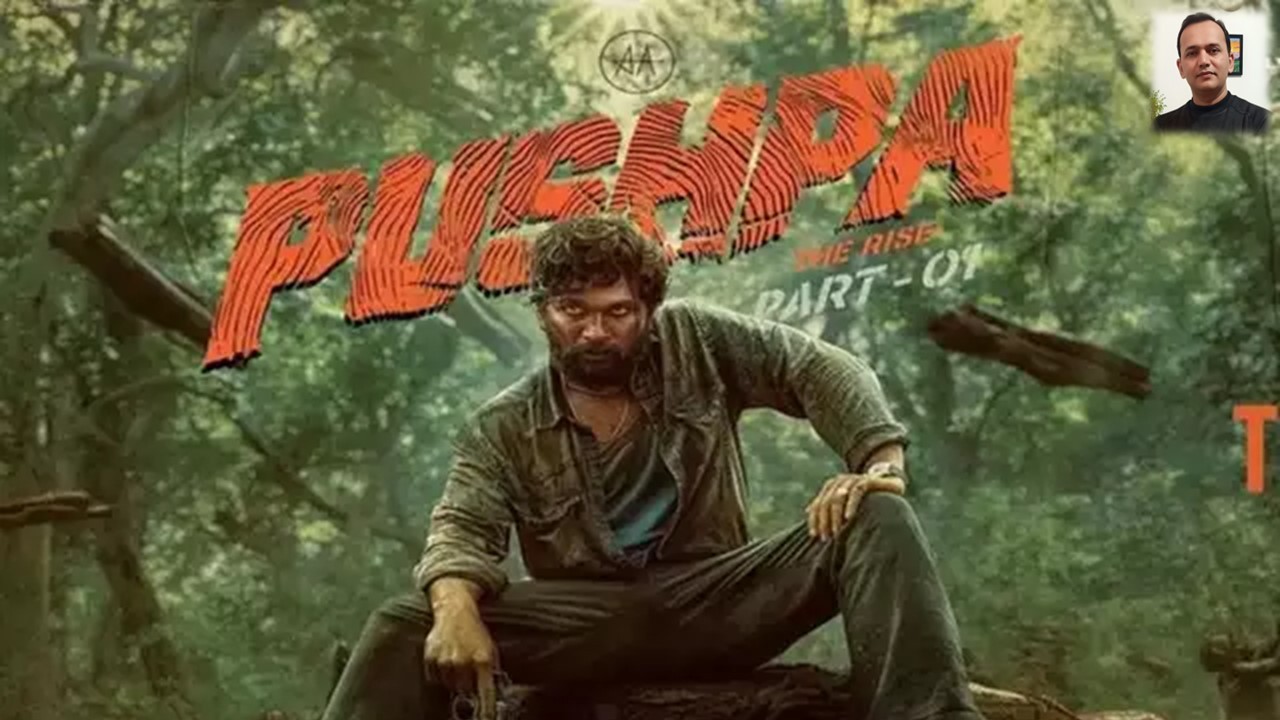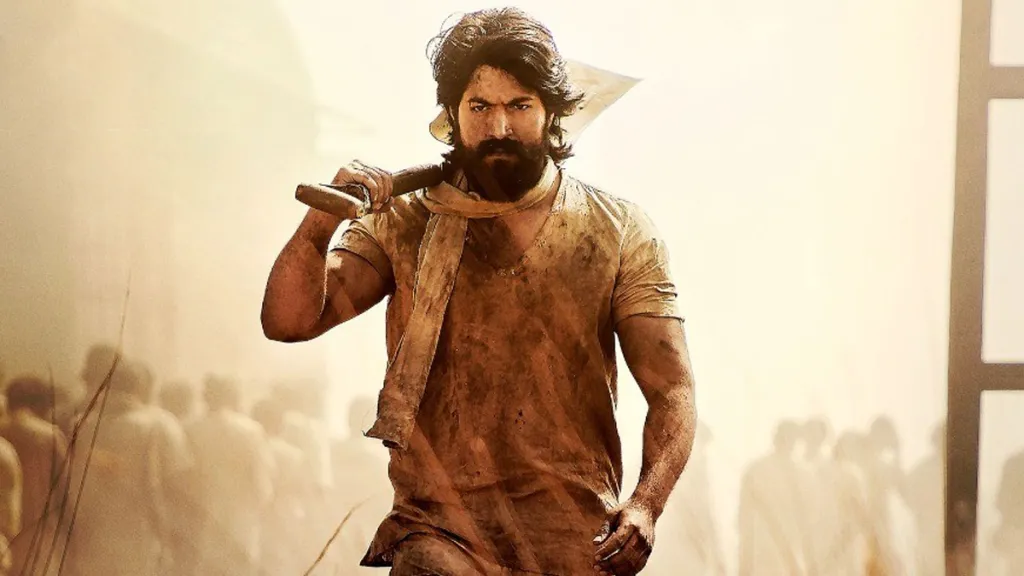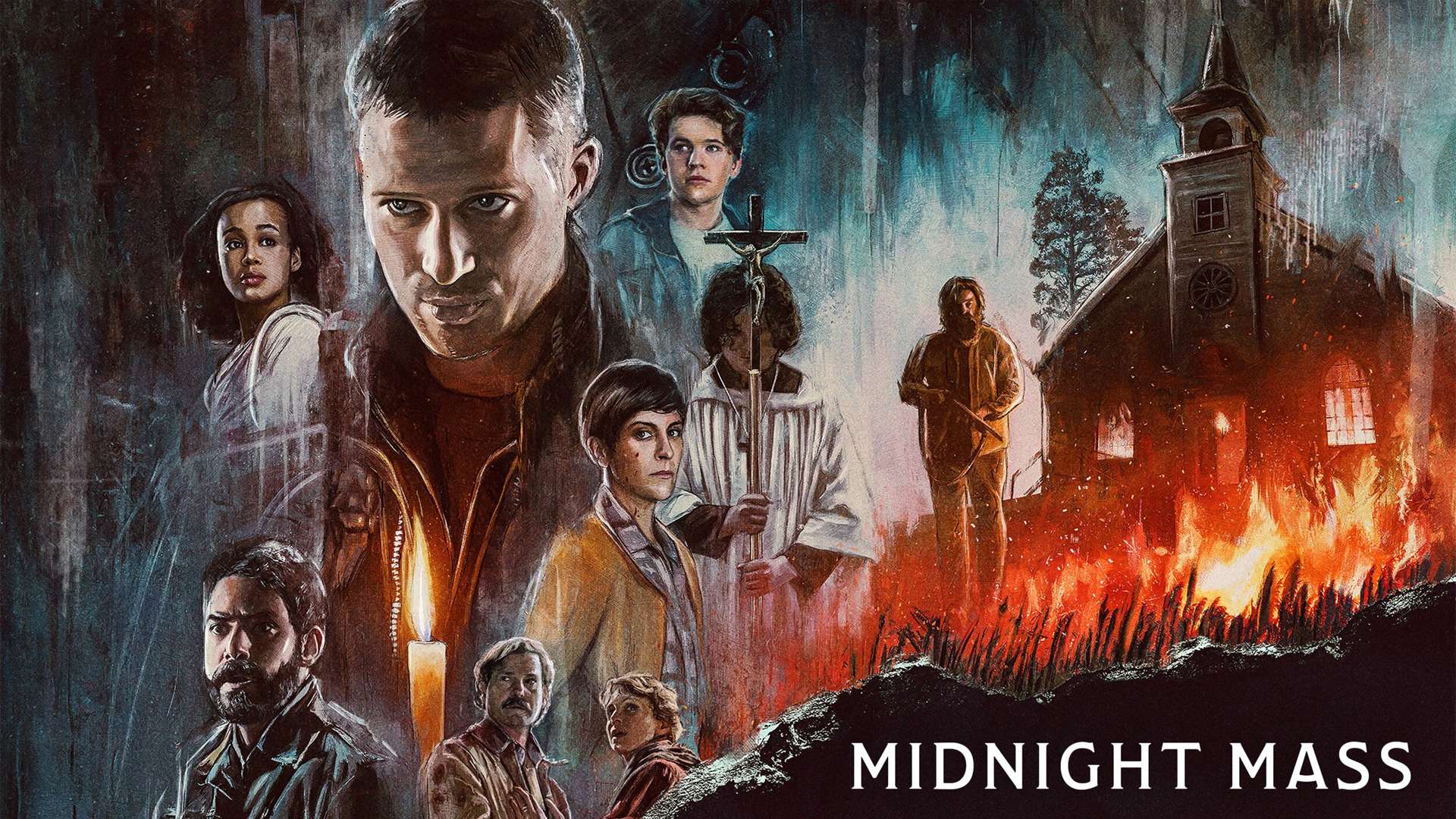Streaming
The Fall of the House of Usher: Quoth the Raven
Spoiler ravens incoming!
Created by a pair of ruthless twin siblings long ago, the current Usher pharmaceutical empire begins crumbling into dust as patriarch Roderick’s adult children begin dying off.
Oh this is a gorgeous one y’all, full of mood and tension and supernatural horror to knock your socks off, sure, but also sporting incredible performances from every single cast member. So let’s dive (off a high-rise balcony) into this!
In the beginning, young Roderick Usher (Zach Gilford) and his twin sister Madeline (Willa Fitzgerald) came from nothing. Their religious fanatic of a mother Eliza (Annabeth Gish) worked as a secretary and occasional mattress-toy for their father William Longfellow (Robert Longstreet), the former CEO of the Fortunato pharmaceutical company. Which is all a glorious irony, because when mother gets sickly, she adamantly refuses to see a doctor due to her religious beliefs, and the children are left to fend for themselves when their father callously denies both them, and their mother, acknowledgement of any kind. And paid a heavy price for it too, when an enraged spirit rose from her grave to exact her righteous vengeance.
Here in the present, old and haggard Roderick Usher (Bruce Greenwood), Fortunato pharmaceutical emperor, opioid king, is haunted by his past mistakes, but also by the specters of his dead adult children. Diagnosed with a heroic list of physical (and let’s face it, mental) ailments, Roderick decides to invite his old nemesis Auguste Dupin (Carl Lumbly) to a secret location, for a full confession of all his crimes, against the world and the courts and even Auggie himself, but most especially against his own family.
Every single one of Roderick’s children comes with a name from an Edgar Allen Poe story and a whole laundry list of odd issues and secrets. Frederick Usher (Henry Thomas), the eldest and heir to the Fortunato empire, has trust issues with his wife Morella (Cystal Balint), and apparently the only actual grandchild thus far, Lenore (Kyliegh Curran). Far as I can tell, Frederick doesn’t actually do anything, other than regurgitate Roderick’s business policies and family fixer-attorney Arthur Pym’s (Mark Hamill) warnings about close-mouthedness as far as the public, media, and especially the law goes. Lenore is of course absolutely beloved by her grandfather, while her mother Morella seems to have past issues with another of Roderick’s kids, Prospero, or Perry (Sauriyan Sapkota) as he prefers to be called.
Frederick’s eldest legitimate daughter, named Tamerlane (really? Wow) but of course she’s called Tammy (Samantha Sloyan) by most, has aspirations of being a different kind of family entrepreneur with her husband Bill Wilson (Matt Biedel) and his fitness influencer lifestyle. Tammy puts a lot of pressure on herself, has frankly utterly ridiculous demands her husband has to follow, and a very unusual way of using call girls to have a … one-some? practically every night. No kink-shaming here of course, but even I raised an eyebrow at Tammy’s nightly adventures and lack of actual sleep.
Camille L’Espanaye is one of Roderick’s several illegitimate children, sharp-tongued and savvy is she, as the head of public relations for Fortunato. Her hair an iconic silvery-white, likely a nod to the older L’Espanaye women of the Poe story, she stalks the scandals, social media, the backgrounds and vices of all the Ushers, and is utterly ruthless in using everything in her power to spin doctor every last Usher disaster as quickly as possible. The on-going trial with older Auggie barely registers in Camille’s arrogant countenance, as she works those sharp-as-steel wits in overtime to address the sudden domino deaths of her siblings. Camille’s casual mistreatment of her two aides Toby and Tina as little more than walking, not talking, sexual stress relievers, it’s apparently literally in their employment contracts and multiple NDAs, is just as horrific as the misdeeds as the other Ushers, and her death comeuppance has a delicious irony to it in this regard.
Victorine LaFourcade (T’Nia Miller) is the eldest of Roderick’s illegitimate children, tall and black and statuesque, a genius heart surgeon on whom Roderick places a ton of expectations and pride. Her partner Dr. Alessandra “Ali” Ruiz (Paola Nunez) is a partner in every sense of the word, both at work and at home, and while Ali has great faith in her gorgeous genius of a partner, she is also leery of using untried Fortunato products in their heart and pace-maker research. The grotesque labs full of monkey test animals and outright lies from an increasingly paranoid and pressured Victorine bring to mind the disaster that led to 28 Days Later, another master horrorpiece.
Poor Napoleon, or Leo (Rahul Kohli) as he rightfully prefers to be called, tatted up and drugged out of his mind more often than not, can’t even rightly claim being a video game designer, as he tries to. No, Leo is a video game publisher and is adrift on the Usher money and lifestyle, both pulling away and edging back to the family that finds him a few shades disappointing. His boyfriend Julius (Daniel Jun) tries so very hard to be just chill about Leo’s increasing paranoia, depression, and hey, feud with that damnable black cat.
The youngest of the illegitimate Usher children, Prospero known as Perry seems determined to live the life of a young bacchanal, full of drugs and sex with multiple partners, an exclusive VIP party that seemingly never ends, and Perry would be the gatekeeper, the overlord of the orgy. His eager ideas for a very posh orgy-porgy amongst the bright young things of the city, with him emperor Dionysus above all, while cute, lacks anything resembling common sense. Indeed, Perry thinks the best place to have his pop-up party of the century is a disused private lab testing site for Fortunato pharma and was meant to have been torn down long ago, but since the Usher family owns these sites (allegedly) he can go ahead and use them worry-free, right? Gives a whole new terrifying spin to, “Make it rain!”
The whole thing with the trial and an elderly but still spry Auguste, and how it directly relates back to that time in the ‘80’s when a much younger Auggie (Malcolm Goodwin) and younger Mads (Willa Fitzgerald) and younger Roderick (Zach Gilford) all wanted to take on current Fortunato head Rufus Griswold (Michael Trucco) and the absolute ass of a jester he’s acting like, is the kind of full-circle irony that a tidy universe loves to show us. Indeed, it’s way back here on a fateful night where, after a beleaguered Roderick has betrayed pretty much everyone but his twin sister, because Mads always has a plan for long-term revenge, that they meet a very strange bartender, who offers them both the deal of several lifetimes.
The woman, or rather the entity that we come to associate as the specter of Death, is never actually given a name. The show BTS information calls her Verna (Carla Gugino), a rearrangement of raven, arguably Poe’s most well-known poem and known in many cultures as the bringer of death, if not Death itself. As the Usher children begin dying, Verna pops up and either guides them through it, or in a rather Final Destination fashion, outright causes their deaths to happen. Verna made a rather monstrous offer of a deal to the Usher twins long ago, they both had to take her up on it, which begins the domino effect that leads all the way to the real fall of the House of Usher, and its lasting legacy on the entire Usher bloodline. Verna encourages the Usher empire founders to think of themselves like that, referring to Mads as Cleopatra and nudging Roderick with his obsession of suicide by khopesh, or the legendary sapphire eyes of Egyptian Queen Twosret, none of which helps the mindset of the Usher family.
The Poe references splashed throughout, the use of light and shadow as each Usher character declines into madness (or dives), absolutely stellar performances from a powerhouse cast, all make for a ride through the haunted legacy of the House of Usher worth repeated viewings! Be there for the collapse of an empire in The Fall of the House of Usher on Netflix now!
Streaming
Review: Pushpa: The Rise (2021)

Director: Sukumar
Cast: Allu Arjun, Rashmika Mandanna, Fahadh Faasil
Genre: Action, Drama
Rating: 4.5/5
Pushpa: The Rise is a raw, adrenaline-fueled ride that showcases the underbelly of the red sandalwood smuggling trade in Andhra Pradesh. Directed by Sukumar, this movie brilliantly blends high-octane action with emotionally driven storytelling, making it a must-watch for fans of Telugu cinema and action dramas.
The narrative follows Pushpa Raj (Allu Arjun), a laborer in the red sandalwood trade, as he climbs the ranks to become a powerful figure. Born into poverty and scorned for his illegitimacy, Pushpa’s journey is marked by grit, ambition, and a fierce sense of self-respect. The film deftly balances the action-packed rise of Pushpa with moments of vulnerability, particularly in his tumultuous romance with Srivalli (Rashmika Mandanna).
The antagonist, Bhanwar Singh Shekhawat (Fahadh Faasil), is introduced towards the film’s end, setting the stage for a gripping sequel. The climactic confrontation between Pushpa and Shekhawat is a masterclass in tension-building, leaving viewers eagerly awaiting Pushpa: The Rule.
Allu Arjun: This is Allu Arjun’s film through and through. His transformation into Pushpa is a revelation, from his rugged look to his unapologetic demeanor. His mannerisms, including the now-iconic shoulder rub and dialogue delivery, make Pushpa an unforgettable character.
Rashmika Mandanna: While her role as Srivalli adds emotional depth to the story, it feels slightly underutilized. However, her chemistry with Allu Arjun is undeniable.
Fahadh Faasil: Despite limited screen time, Fahadh delivers a chilling performance as the cold and calculating Shekhawat. His presence promises an explosive conflict in the sequel.
Sukumar’s direction is stellar, balancing mass appeal with nuanced storytelling. The screenplay maintains a brisk pace, seamlessly weaving action sequences with character development. The film’s raw and grounded tone is a departure from the glossy feel of many mainstream Telugu films, adding authenticity to the story.
Mirosław Kuba Brożek’s cinematography is stunning, capturing the lush forests of Andhra Pradesh and the gritty world of the red sandalwood trade.
Devi Sri Prasad’s music is another highlight. Tracks like “Srivalli” and “Oo Antava” became cultural phenomena, while the background score enhanced the film’s intensity.
Action Sequences: The action choreography is visceral and hard-hitting, perfectly complementing the film’s tone.
The film explores themes of ambition, class struggle, and self-respect. Pushpa’s refusal to bow down to societal norms resonates deeply, making him a relatable anti-hero. The story also critiques the systemic exploitation of laborers, adding a layer of social commentary.
Pushpa: The Rise is an exemplary action-drama that redefines the Telugu film industry’s global appeal. With a magnetic performance by Allu Arjun, stellar direction by Sukumar, and unforgettable music, it stands out as one of the best films of 2021. While it occasionally falters with some underdeveloped subplots, the overall experience is nothing short of spectacular.
4.5/5 Pushpa: The Rise is a cinematic feast that deserves its cult status. Whether you’re a fan of Telugu action films or a newcomer, this film is a must-watch. Its cliffhanger ending ensures that Pushpa: The Rule will be even bigger and better.
Streaming
KGF: Chapter 2

Director: Prashanth Neel
Cast: Yash, Sanjay Dutt, Raveena Tandon, Srinidhi Shetty
Genre: Action, Drama
Rating: 4.5/5
KGF: Chapter 2 is an explosive sequel to the 2018 blockbuster KGF: Chapter 1. Directed by Prashanth Neel, the film elevates the gritty narrative of Rocky (played by Yash), a man who rises from poverty to become a feared and revered leader. The sequel builds on the success of the first chapter with an even grander scale, intense drama, and jaw-dropping action sequences.
The story picks up with Rocky establishing his dominance over the Kolar Gold Fields after eliminating his rival, Garuda. As the “king of KGF,” Rocky faces new challenges, including the vengeful Adheera (Sanjay Dutt), who returns to reclaim what he believes is rightfully his. Meanwhile, political power struggles arise, with Prime Minister Ramika Sen (Raveena Tandon) intent on curbing Rocky’s influence.
The film delves deeper into Rocky’s psyche, exploring his motivations, vulnerabilities, and unrelenting ambition. It balances high-octane action with emotional depth, as Rocky continues his fight for survival and legacy.
Yash’s Star Power: Yash’s portrayal of Rocky is magnetic. His intensity and swagger make the character larger-than-life while retaining a raw, emotional core.
Sanjay Dutt as Adheera: Inspired by Viking warriors, Dutt’s Adheera is a terrifying and formidable antagonist, creating memorable clashes with Rocky.
Visual and Technical Brilliance: The cinematography by Bhuvan Gowda captures the grandeur and darkness of KGF with stunning visuals. The action sequences are choreographed to perfection, blending realism with spectacle.
Ravi Basrur’s Music: The background score enhances the drama, creating an immersive experience.
Dialogues and Screenplay: Rocky’s punchlines, combined with the tightly written narrative, keep the audience engaged.
While the film is a cinematic treat, its pacing occasionally falters with some scenes overstaying their welcome. The sprawling cast and multiple subplots can make the narrative feel dense at times.
KGF: Chapter 2 is a roaring success that delivers on its promise of being bigger, bolder, and better than its predecessor. It combines a compelling story with spectacular action and unforgettable performances, particularly from Yash and Sanjay Dutt. The film solidifies the KGF franchise as a benchmark for Indian action cinema.
Final Rating: 4.5/5 Whether you’re a fan of action-packed epics or compelling character-driven dramas, KGF: Chapter 2 is a must-watch that will leave you exhilarated.
Streaming
KGF chapter 1 – A Gritty Saga of Power, Poverty, and Redemption

Indian cinema has a long-standing tradition of delivering grand narratives that are equal parts spectacle and soul. KGF: Chapter 1 (Kolar Gold Fields), directed by Prashanth Neel, is a prime example. This gripping action-drama chronicles the meteoric rise of Rocky, a man driven by a promise and fueled by his hunger for power. Released to critical acclaim, KGF has redefined the boundaries of storytelling in Indian cinema.
Set in the 1970s, KGF follows the journey of Rocky (Yash), a young boy born into poverty in the slums of Mumbai. From a tender age, Rocky is shaped by two forces: his mother’s dying wish for him to rise above his circumstances and his unyielding ambition to command respect and fear.
His journey takes him to the gold mines of Kolar, a lawless land ruled by brutal oppressors. The film tracks Rocky’s transformation from a street-smart hustler to a feared force who challenges an empire built on blood and exploitation.
The strength of KGF lies in its compelling protagonist. Yash delivers a magnetic performance as Rocky, embodying both his raw charisma and ruthless determination. The film paints a vivid picture of a man who thrives in adversity, using every setback as fuel for his ascent. Rocky is not a mere vigilante but a strategist, whose ability to inspire loyalty and strike fear sets him apart.
The movie captures his internal conflict beautifully — while he climbs the ladder of power, he never loses sight of his mother’s dream for him. This duality makes Rocky more than just a hero; he is a symbol of rebellion, resilience, and redemption.
At its core, KGF is a commentary on systemic oppression and the human spirit’s ability to rise against all odds. The stark contrast between the opulence of the gold fields’ rulers and the crushing poverty of its workers sets the stage for Rocky’s rebellion. His fight isn’t just personal; it’s for the voiceless, the oppressed, and the forgotten.
The film doesn’t shy away from showcasing the brutal realities of poverty and exploitation, making Rocky’s triumph all the more satisfying.
Prashanth Neel’s direction is nothing short of masterful. Every frame of KGF is meticulously crafted, from the sweeping vistas of the Kolar gold fields to the grimy underbelly of Mumbai’s streets. The gritty visuals are complemented by an electrifying background score that enhances the film’s larger-than-life moments.
The nonlinear narrative, interspersed with a journalist’s account of Rocky’s rise, keeps viewers engaged and adds layers to the storytelling.
The action sequences in KGF are a visual feast. Yash’s larger-than-life persona is amplified by choreographed fights that are brutal, balletic, and breathtaking. Each confrontation feels earned, showcasing Rocky’s ingenuity and brute strength. The climax, set against the backdrop of the Kolar gold mines, is particularly unforgettable.
KGF: Chapter 1 is a cinematic triumph that combines raw emotion, relentless action, and a protagonist you can’t help but root for. Yash’s performance and Prashanth Neel’s vision elevate the film to a league of its own, making it a benchmark in Indian cinema.
KGF is more than a film; it’s an experience. It’s a story of ambition, sacrifice, and the indomitable human spirit. Rocky’s climb from the depths of poverty to the pinnacle of power is not just inspiring — it’s electrifying.
Whether you’re a fan of action-packed dramas or epic tales of rebellion, KGF delivers on every front. With its gripping narrative and unforgettable performances, it’s a must-watch for anyone who loves a good underdog story.
Rating: 4.8/5 As Rocky says in the film, “Powerful people make places powerful.” By the end of KGF, you’ll realize that Rocky is one of them — and so is this film





